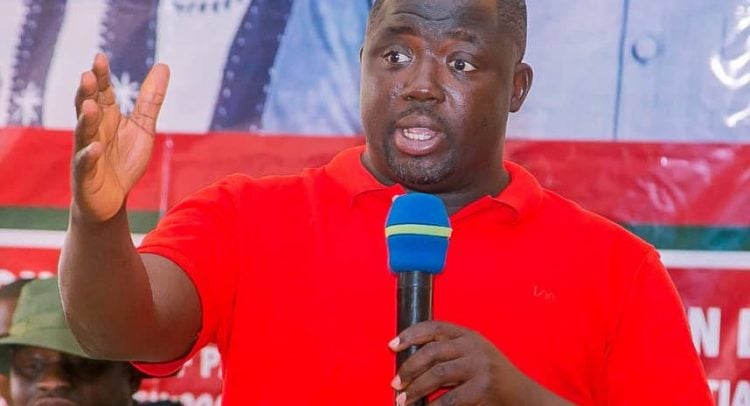The National Democratic Congress (NDC) has reiterated its commitment to pursuing legal action against former government officials suspected of corruption, responding to calls from the opposition New Patriotic Party (NPP) to move beyond public pronouncements and initiate concrete legal proceedings. The NDC’s stance, articulated by Mustapha Foyo Gbande, Deputy Director of Operations at the Presidency and Deputy General Secretary of the NDC, underscores the government’s resolve to hold individuals accountable for alleged corrupt practices. This commitment aligns with public demands for transparency and justice in addressing corruption allegations, a critical concern for the Ghanaian populace. Gbande’s statements emphasize the NDC’s intention to follow due process, ensuring thorough investigations and prosecutions within the bounds of the law.
The crux of the contention lies in the NPP’s insistence that Attorney-General Dominic Ayine should refrain from public discussions about ongoing corruption investigations and instead focus on presenting concrete evidence in court. The NPP argues that public pronouncements, before formal charges are laid and legal proceedings commence, could be perceived as prejudicial and potentially undermine the integrity of the judicial process. They suggest that the Attorney-General’s public statements might be construed as an attempt to influence public opinion or exert undue pressure on potential witnesses or the judiciary itself. The NPP’s demand for action rather than words reflects their belief that the government is using public pronouncements as a political tool rather than genuinely pursuing justice.
In contrast, the NDC, through Gbande, defends the Attorney-General’s decision to address corruption cases publicly, arguing that transparency is paramount and does not necessarily conflict with due process. Gbande maintains that informing the public about ongoing investigations serves the public interest by demonstrating the government’s commitment to tackling corruption. He contends that transparency builds public trust and confidence in the government’s efforts to combat corruption, ensuring that the process is not shrouded in secrecy. Furthermore, Gbande suggests that the NPP’s criticism stems from their discomfort with being held accountable for their past actions while in power.
Gbande’s response also pointedly addresses the NPP’s perceived obstructionism and criticism of the government’s anti-corruption efforts. He characterizes the NPP’s stance as an attempt to deflect attention from potential wrongdoing within their ranks, portraying them as resistant to accountability now that they are no longer in power. Gbande specifically mentions Richard Ahiagbah, the NPP’s Director of Communications, cautioning that no amount of public relations or political maneuvering will shield anyone from facing the consequences of their actions if found guilty of criminal activities. This targeted remark highlights the escalating tension between the two parties over the corruption issue.
The ongoing exchange between the NDC and NPP signifies a broader political struggle concerning accountability and transparency within Ghana’s governance. The NDC’s commitment to prosecuting corruption cases clashes with the NPP’s calls for due process and discretion. This dynamic reflects the inherent tension between the government’s imperative to address corruption and the opposition’s responsibility to ensure that the legal process is followed scrupulously. The public pronouncements from both sides serve as a platform for shaping public opinion and garnering support for their respective positions.
Ultimately, the effectiveness of the government’s anti-corruption drive will be judged not solely on its public pronouncements but on the tangible results it achieves. Successful prosecutions, based on solid evidence and conducted within the framework of the law, will be crucial in demonstrating the government’s genuine commitment to tackling corruption. Conversely, any perceived failures to pursue cases diligently or instances of politically motivated prosecutions could further erode public trust and fuel accusations of political maneuvering. The ongoing dialogue between the NDC and the NPP highlights the critical importance of maintaining a delicate balance between transparency, accountability, and the preservation of due process within Ghana’s democratic framework.














